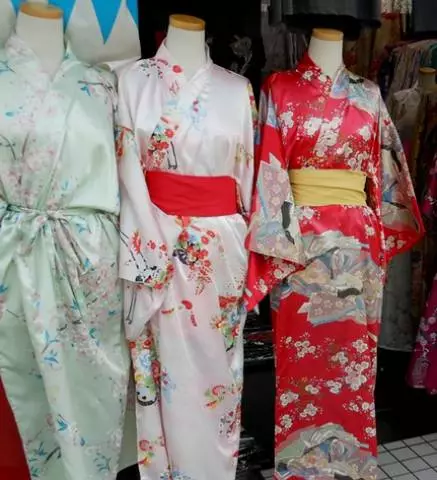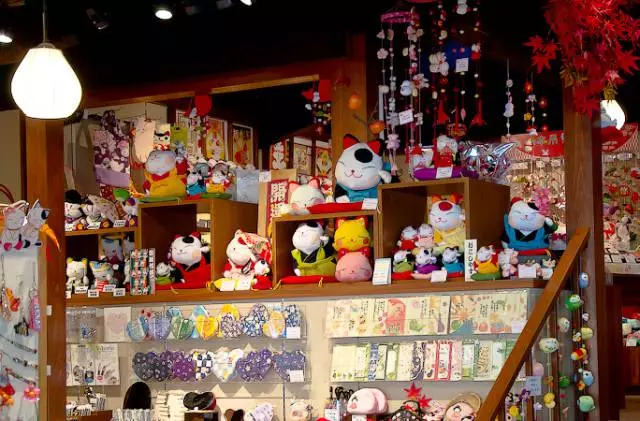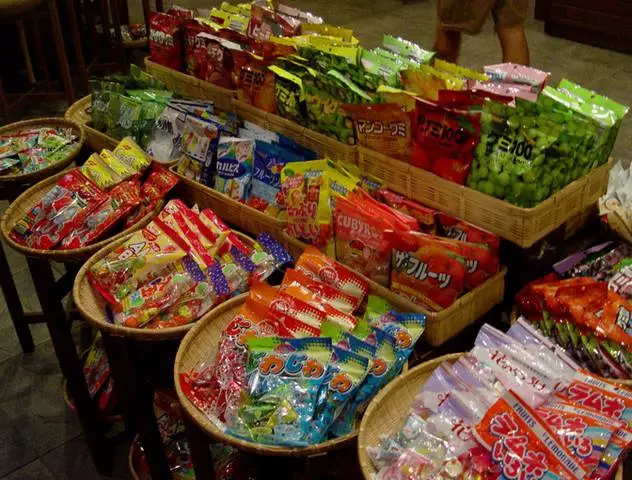The journey "on the edge of the world" into the mysterious country with a special religion, strict shorts and picturesquely blooming Sakura, will definitely get difficult to fascinating, and unforgettable and practical. First of all, a trip to Japan is an informative journey, during which it will be possible to get acquainted with one of the ancient world cultures, enjoy visiting centuries-old monuments and ultramodern attractions. But, in addition to all this, the journey in Japan will not cost without random or planned visits to local stores. I very much doubt that at least one tourist will be able to avoid trivial shopping, being in a country that is rightly considered one of the reliable and solid manufacturers.
Immediately I want to note that shopping in Japan is relatively expensive. And I speak at all about buying a large household appliance or car. Some traditional souvenirs are from 10 thousand yen and above, but you can always find cute memorable things for 900-3000 yen. As for corporate clothes, there are many boutiques of famous world brands in Japan. However, the prices of them are high enough. Therefore, if there is a desire to buy a high-quality brand thing, it is better to pay attention to the well-known Japanese brands - Jun Ashida or Issey Miyake.
So, what can be brought home from Japan?
Souvenirs are authentic goods that will help refresh the memories of a fascinating trip. Such things for tourists traveling in Japan become cotton and silk kimonos, colorful fans, wooden hairpins in the style of geisha, various figurines, traditional Japanese paper. All this is sold in small souvenir bears and in large shopping centers. Cotton kimono can be bought for 3500 yen, and for a silk outfit will have to lay out from 7 thousand yen.

That's just looking after all these tourist trifles, travelers will face a feature of Japanese shopping. Souvenirs in different shops can cost unequal. And it is connected with the fact that, for example, a cheaper statuette of cats with a raised paw (Maeca-Naco) will be produced in China, and the other is more expensive, will be made in the local artismale workshop. Outwardly both souvenirs will look equally. So if tourists care about the memorable thing to the visited country, and not the place of its production, then you can safely acquire a cheaper option.

As souvenirs, travelers can buy objects of folk creativity or sets for calligraphy. Handwall of artisans selling goods from bamboo, wooden carved figures and traditional Japanese masks, dolls are found in all areas of large cities in the country and on the main shopping streets of small settlements.
Quite often, tourists, leaving Japan, take with them to their homeland "edible" souvenirs. Some travelers are purposefully sent to the grocery departments of shopping centers in search of edible trifles from soybeans or rice flour. Unsite green candy, pink languages made of hardware and other delicacies with an unusual taste are sold in numerous shops and in the specialized departments of department stores.

There, tourists can find sushi long-term storage with pickled fish, dried octopus and green tea. However, soy souvenirs together with sake and plum liqueur are sold at all airports in Japan. On average, "edible" little things are 500 yen.
Clothing and decorations
No brand things in Japan stand within 1500-4000 yen. But, despite the low price, acquire the items of the wardrobe most of the guests of the country are in no hurry. Just the main part of Japanese clothing belongs to a very peculiar style suitable rather than adults rather than adults. So, if you plan to replenish the stock of things for a child or a teenager, then the local "clothing" shopping will disappoint you.
As for the purchase of jewelry, the beautiful and high-quality pearls are sold in Japan. In Tokyo jewelry stores, Kyoto or Yokohama, you can choose a variety of necklaces and earrings from snow-white, cream and bluish pearls. And from accessories you can buy a set of nasal scarves or a couple of gloves.
Discount time and work schedule of Japanese stores
Most stores and shopping centers of the country operates daily from 10:00 to 20:00. Large supermarkets and shopping and entertainment complexes finish working day around 22:00. On Saturday, Sunday and on holidays, usually shopping areas are open to visitors. True, in some cities of Japan, the stores are closed on Wednesdays. You can pay for purchases only in the yen, but some shopping centers Tokyo accept dollars and euros. You can find them on the most expensive and fashionable street of the capital Ginza.
The sale in Japan falls for the period of changing the seasons when shops are getting out of the bins not sold in the past season and arrange 20% Sale. But the most ambitious sales take place twice a year - from the second Friday of July and January. They are usually one week. At this time, you can buy high-quality things with an 80% discount. True, everything begins with a minimum price reduction (20%) and only in the last days of the week of the week discounts reach their maximum (80%). So, if staying in the country allows, it is better to gain patience and go on shopping at the very last moment.
Tax Free in Japan
Foreign tourists, making shopping in local stores, can count on the return of tax for purchases. The dominant amount ranges from 5 to 8%. Get your money back, or rather underpay these few percent, tourists are entitled when making a purchase in the amount of more than 10 thousand yen. The fact is that in Japan, the refund is much easier than in many European countries. At the time of the appropriate purchase of the total traveler account, 5% VAT is deducted, and the remaining amount is paid by the buyer. At the same time, the corresponding receipt is pasted into the passport of the tourist, which is subsequently taken by workers of the customs service. In some department stores, the return of the tax is issued after making a purchase and money along with the receipt are given right there.
So, going to shopping, tourists should not forget our passport.
